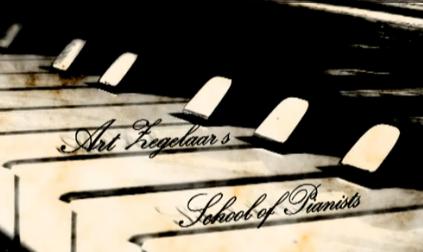Interview
Channel North: Tony Underwood
and Yuka Bath
Yuka Bath: "Thank you"
Channel North: "I am sure other people who have watched it will enjoy it as well"
"Now, you were just telling me you were playing from a very young age, what did your mother say, how young were you when you started playing the piano?"
Yuka Bath: "I was very young. My mother said I was three when I started to play the piano, but.... I think it is physically impossible to move the fingers separately at three years old, so I believe I started to learn the piano when I was five... four, five, six something like that..."
Channel North: "And then how long did you keep playing for after that?"
Yuka Bath: "Oh, until eighteen years old and after 12 years I was really seriously practicing the piano for my career... Sometimes my mother remembered I was playing the piano about eight to twelve hours per day!...Yeah I know, it's crazy isn't it?...
Channel North: "You must have really loved it?"
Yuka Bath: "Yes, must be...I spent most of all my time in front of the piano when I was young, yeah... "
Channel North: "So what made you stop when you were eighteen?"
Yuka Bath: "Well, I decided to take a different career when I was seventeen, so that gave me one year to give up the piano. When I was seventeen I decided, that's it, I am going to do something else....
I think part of the reason was that I have very small hands. If I had had larger hands, then I may still have been in Japan and play the piano...But yes, that is one of the reasons why I decided to quit the piano"
Channel North: "And you had a bit of an injury from playing so much too?"
Yuka Bath: "Yes, because well.. 12 hours... and I think my form of playing the piano was not really the correct way...So, yeah, that was a bit of a strain on my wrist, so I had quite a bit of injuries from playing the piano"
Channel North: "So, now you are more conscious of that? And you make sure this will not happen again?"
Yuka Bath: "Yes, exactly, because this time I want to play the piano for a long time, almost like the rest of my life hopefully, so you don't want to damage my hands..."
Channel North: "The pieces you played today were Schubert.... What is it about those pieces that you particularly like? Were there any challenging parts which were harder than others?"
Yuka Bath: "This is one of four pieces, the second one I played today, [Impromptu Ab, Opus 90] and I think I was fifteen or sixteen when it was the first time I played this one and I played all four pieces in sequence. But at the time I came to number four, which I played today, my wrist gave up on me and so yes, I had a really bad injury after that I played this number four... So it is very memorable music for me, because I could not play the piano for a good couple of weeks after that... Every time I play this number four I remember the image I used to have, of a Christmas tree...It's a twinkle, lots of light... I have the same image I have, when I play this piece. Perfect one...
Channel North: "Well, it has been really, really wonderful that you have been able to do that today and we thank you again for coming in and sharing this with us. Hopefully you will enjoy it when you get to see it."
Channel North: Tony Underwood
and Art
Channel North: "Can you tell us a bit about Yuka?"
Art: "Yes, I got to know Yuka actually through her daughter. She brought her daughter last year to me for me to teach her. And when I was teaching her - you get to know people - she told me she actually played herself her whole life more or less and that her mother was a piano teacher. She liked to observe the way I was teaching Jessica and that gradually made her aware of why she had some problems when she was around eighteen and she was studying at University or something and was forced to stop. And it is a very good example of the fact that as a pianist when you get to a more advanced level if your technique is not healthy that you really can injure yourselves. Really playing advanced piano is top sport. It really is yes, but without the whole support environment, which is there for sport. And that is only gradually the last couple of years worldwide getting recognized. Really that top pianists need top care also. It is not there yet....
When People win a competition, it is a wondrous achievement, but afterwards there is this huge gap, there is nothing for them, yes, I think this should change. It IS changing in Asian countries for instance, where a top pianist is a pop star. A classical top pianist! There is this support environment. But in our Western world over the last twenty years it has been fading a little bit ...
So with a wrong piano technique you really can injure yourselves. And whilst I was teaching Jessica she just found that quite a few things were different from the way she was taught to deal with the keyboard, so she started taking lessons too and she explained a few of her problems and we managed to overcome, it takes years to really overcome them, she will overcome them. Just changing a few things of how to approach the keyboard and now she is playing this Schubert, which is really very difficult, you bounce with your hand and use gravity.
So, yes that is my experience with Yuka...."








